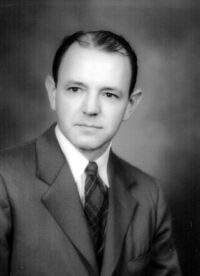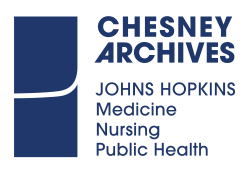Roger M. Herriott Collection

Roger M. Herriott
by unidentified photographer
Collection Overview
Creator: Herriott, Roger Moss (1908 - 1992)
Collection Date: 1948 - 1992
Extent: 25 cubic feet
Biography
Roger M. Herriott was born in Des Moines. He received his A.B. in 1928 from Drake University and his A.M. in 1929 and his Ph.D. in 1932, both from Columbia University. After graduating from Columbia University, he joined the Rockefeller Institute in Princeton, New Jersey, working on a study of pepsin. During World War II, Herriott did research on the effects of mustard gas on viruses, cells, enzymes, and DNA. A noted expert on viruses, he headed the biochemistry department at the Johns Hopkins University School of Hygiene and Public Health from 1948 until his retirement in 1975. Herriott was the first scientist to suggest that a virus could spread infection like a hypodermic needle, injecting bacteria with its DNA. In the 1950s, he introduced DNA instruction to the school of hygiene and public health.
Scope and Content
The Roger M. Herriott Collection spans his entire career at Johns Hopkins. It primarily consists of Herriott’s DNA reprint collection, including articles and other source materials. In addition, the collection contains reprints of Herriott’s work, clippings about Herriott and the Johns Hopkins University School of Hygiene and Public Health, and a cassette tape of a 1962 interview with Herriott concerning DNA transformation, hybrid DNA, and photo-reactivating enzymes. Additional material on Herriott can be found in the personal papers of Bacon Chow.
